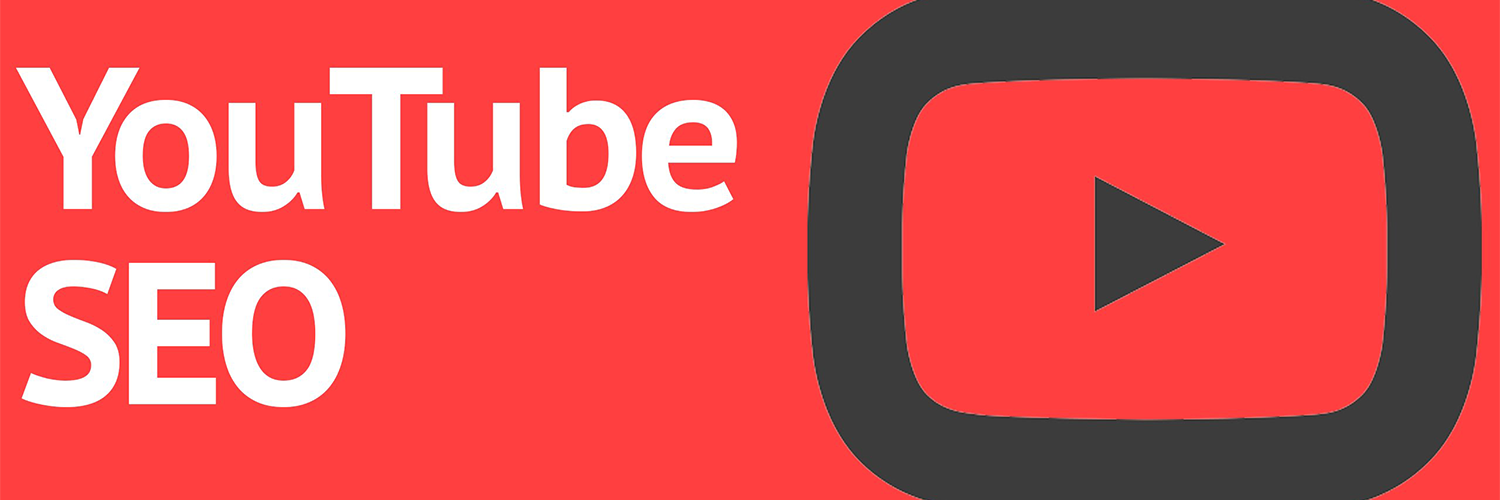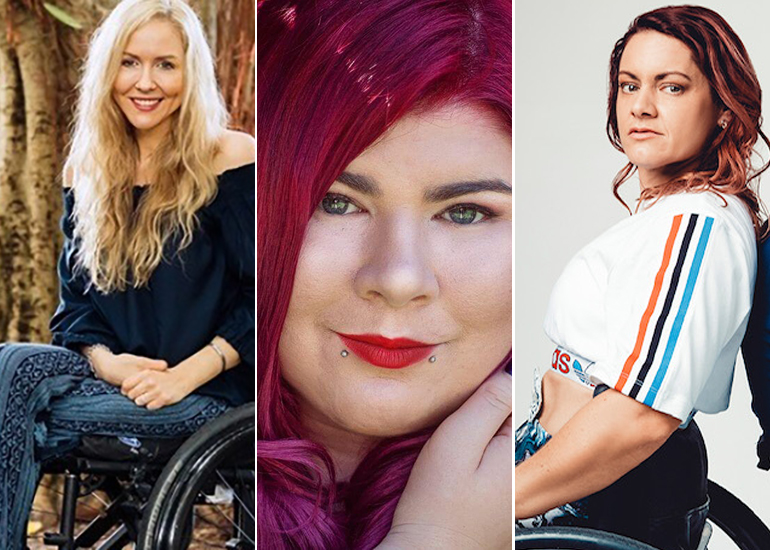[ad_1]
We live in a world slowly embracing difference. Changes to equal opportunity legislation and diversity and inclusion policies within organisations are about creating a fair and equitable playing field for those who often felt unheard and unrepresented. While we have come a long way, many gaps still need to change to truly say everyone has a voice, especially in business and employment, writes Annette Densham.
Take the disability sector. The media and businesses in Australia regularly overlook 20 per cent of the consumer market who identify as having a disability. That’s over 4.4 million Australians.
Some you can see, but many disabilities you can’t. Many people with disabilities are still considered objects of pity, and when they are represented in mainstream media and pop culture, the focus is ‘inspo porn’ and not on their accomplishments as human beings.
People with disabilities are more than their disability.
Some quick stats:
- 41 per cent derive their income from salary or wages, not government benefits.
- 26 per cent earn over $1,000 a week from their job or business.
- And 21 per cent have a bachelor’s degree or higher.
- However, less than half have a job, and less than one in five runs their own business.
Misconceptions are holding people with disabilities back from the workforce
Natasha Price, from InvincAble, said it can be difficult to secure gainful employment.
“Especially in an area where you are able to chase your passions and as a person with a visible disability, due to the perception that we may not be able to keep up with the rigours of the job, or expensive accessible practices that may need to be adopted to make the position tenable,” she said.
“That’s why statistics show people with disabilities are 40 per cent more likely to take up entrepreneurship than their non-disabled counterparts, and 33 per cent more likely to remain in entrepreneurship. We often have very few other options.”
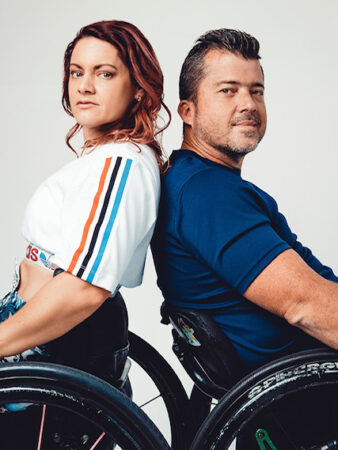
Natasha Price and Adam Sheppard, co-founders of InvincAble.
There are so many misconceptions and judgements about people with disabilities. The overwhelming response from people contacted for this article shared that they started their business because of limited employment opportunities and a lack of understanding of how to support people with disabilities in the workplace.
People like writer Zoe Simmons, who started her business out of necessity. “When my health issues worsened, I couldn’t work an in-house, standard, nine-to-five job. The sicker I got, the less I could do – and remote work became more difficult to access. I left my job, and jumped into my copywriting and editing business,” she said.
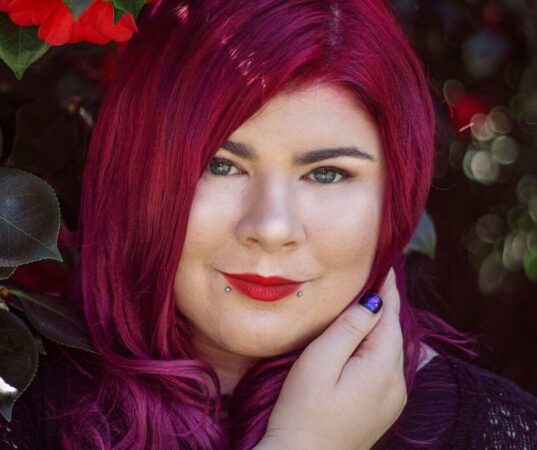
Zoe Simmons, journalist, copywriter and editor.
Catherine R Booth started her business because she wanted to be an employer with an accessible workplace. “As a profoundly deaf business owner, I had hurdles primarily around the phone. I’d have to go into my local bank to deal with things that came up. Their standard response was, ‘phone the business section of the bank in metropolitan areas’ (I was regional).
“I had customers who wanted to speak to the manager/owner, and some didn’t believe I was the owner because of their bias that deaf people didn’t have the capacity to own and run businesses,” she said.
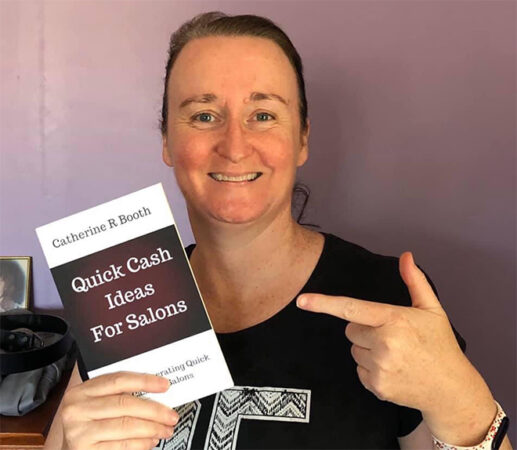
Catherine R Booth, author and business owner.
After resigning from her job 20 years ago, Ainslee Hooper attempted to look for other jobs through a Disability Employment Services provider. “Despite completing a university degree, the DES provider told me they had no leads. I later found they were never going to have any leads because of the way the system is designed, only getting paid for getting certain jobs.
“When a friend asked me what I wanted to do, which was to use my degree to help people, I registered an ABN and started my own business consulting in 2019,” she said.
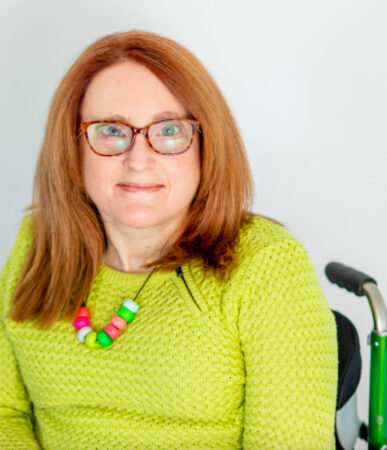
Ainslee Hooper, founder of Ainslee Hooper Consulting.
Then there are the billions of dollars left on the table by businesses that overlook people with disabilities. Advocate Lisa Cox’s recent TEDx Talk, shared how businesses are missing out on this large and relatively untapped market.
Lisa works with advertising agencies to change how people with disabilities are represented in mainstream media. Starting her business 13 years ago, she set out to fill the gap for greater representation of disability. “Back then, everyone thought I was joking when I suggested people with disabilities in advertising, but today advertisements with disabilities are winning Cannes Lions,” she said. “I work to create greater understanding and break down the barriers and fear around disability using the most powerful industries I know.”
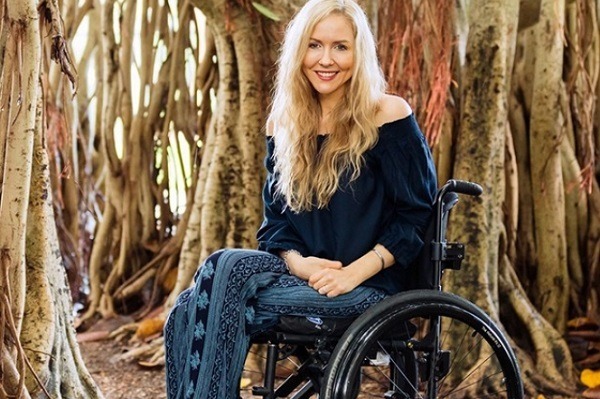
Lisa Cox, award-winning writer, author, motivational speaker, consultant, and disability activist.
Key challenges for people with disabilities in business
Even after taking the plunge into business, people with disabilities face many challenges that stymie their success.
Lisa said as a business owner, the biggest challenge is people trying to take advantage of her. “They think I won’t notice, but I do. I’m frequently underestimated or having assumptions made about me. I know this happens to many others and informs much of the work I do,” she said. “I can’t change my disabilities, but I can change how society perceives me and others with disabilities.”
For Natasha and her business partner Adam Sheppard, they’re often not taken seriously as businesspeople, dealing with assumptions that they’re not on an equal playing field with non-disabled counterparts, even within the field of disability itself. “There’s an expectation that we only work with people with disabilities. It can be difficult for the able-bodied community to see past our wheelchairs and see us as experts in our field,” she said.
Ainslee said being taken seriously is her biggest challenge. “I no longer go to face-to-face networking events because as soon as people see the wheelchair, they’re no longer listening to what I do, but rather filling in the gaps in their heads, and I’m getting referred to people for something completely out of my field of expertise. The conversation ends with being told, yet again, how inspirational I am,” she said.
For Bianca Stawiarski, Warida Wholistic Wellness, the challenges are people’s perceptions of what disability is. “When people look at me, they don’t equate me with being impacted by a disability. It’s not something I talk about or hide, because I work hard to move beyond the limitations that I experience,” she said.
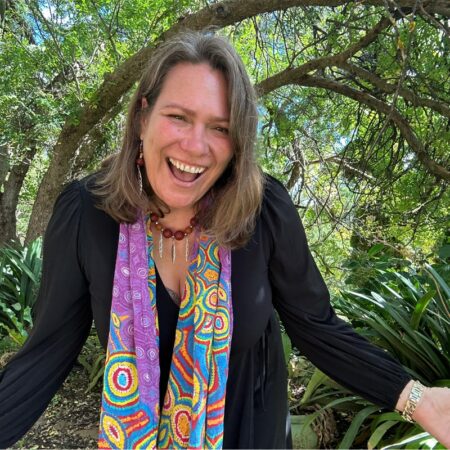
Bianca Stawiarski, Managing Director of Warida Wholistic Wellness.
Marikje Fotia, from Antje Art, thinks the demands of the business to be ‘on’ all the time is exclusionary to people with a disability. “The Western capitalist framing of success as monetary means other indicators of success, such as happiness, wellbeing, community connection, are rarely touted as important. We need to change the trope that to be a successful business owner, you need to burn the candle at both ends, plus be an awesome parent, volunteer in your community, and oftentimes assist older parents,” she said.
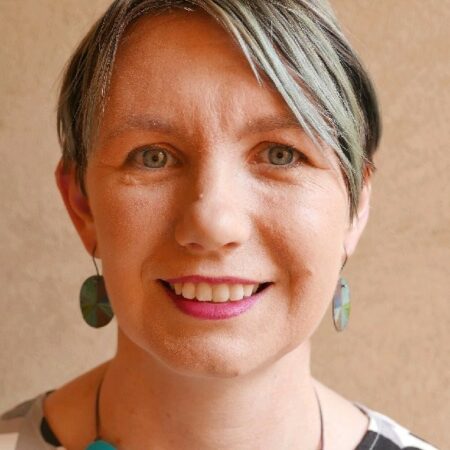
Marikje Fotia, founder of Antje Art.
What can businesses and workplaces do better?
Despite these challenges, there’s hope that things will continue to change, and those judgements and stereotypes become a thing of the past. For things to change, here’s what these business owners want you to know.
Lisa wants more people with disabilities in senior/management positions, not just in entry-level roles. “Research shows that those people already exist – they may have an invisible disability but are too afraid to disclose it for fear of what it will do to their job. That’s where a change in social attitude and workplace culture can be most helpful. It’s shocking these attitudes exist,” she said.
Ingrid Fernandez, from HerLegals said there needs to be more compassion and understanding when people share their personal stories. “We need to better equip ourselves with knowledge of disabilities that impact our communities and fellow business owners. We need to speak about the myriad barriers faced in able-bodied spaces without fear of being excluded or ostracised. We need allies who see the challenges faced by people with disabilities and advocate for change,” she said.
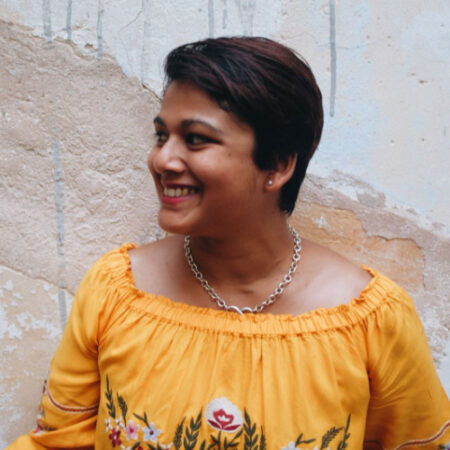
Ingrid Fernandez, founder of HerLegals.
Ainslee said “Disability entrepreneurship is more attractive and popular for disabled people than salaried employment. Salaried employment is designed with the non-disabled person in mind. We saw that with COVID-19. When businesses could no longer do business as usual, they had to pivot and adopt disability-inclusive practices. The unemployment rate of disabled people went down because more were employed. Now we’re seeing a backflip with business as usual, going back to pre-COVID times.”
Zoe wants people to remember that people with disabilities are people. “We’ve dreams and aspirations, just like anyone else. Chances are, you already know someone who lives with a disability; it’s probably just invisible. Our access needs are not a burden. We’re not a burden,” she said.
Catherine wants businesses to have access to and utilise disability access specialists, so they can make their individual businesses as accessible as possible to as broad a range of disabilities as possible. “Communication is key,” she said.
Natasha said there needs to be more focus on universal design. “Accessibility for everyone should be a priority in builds to remove barriers for all looking to participate in life. Management needs to have more honest conversations about recruitment, staff abilities and recognising skills, no matter disability or not.
“Open-mindedness by the population is needed, so people can see what can be achieved by those with disabilities,” she said. “We need to tackle unconscious bias head-on. Media needs to stop perpetuating the myth that disability is a problem to solve or hide for inclusive businesses to be taken seriously, and that anyone with a disability running their own business is nothing more than a source of inspiration for others.”
If our society is to truly prosper, there needs to be more than token representation, there needs to be genuine inclusion.
Want more? Get our newsletter delivered straight to your inbox! Follow Kochie’s Business Builders on Facebook, Twitter, Instagram, and LinkedIn.
Now read this:
What Lisa Cox wants you to know about disability and disrupting expectations
[ad_2]
Source link

